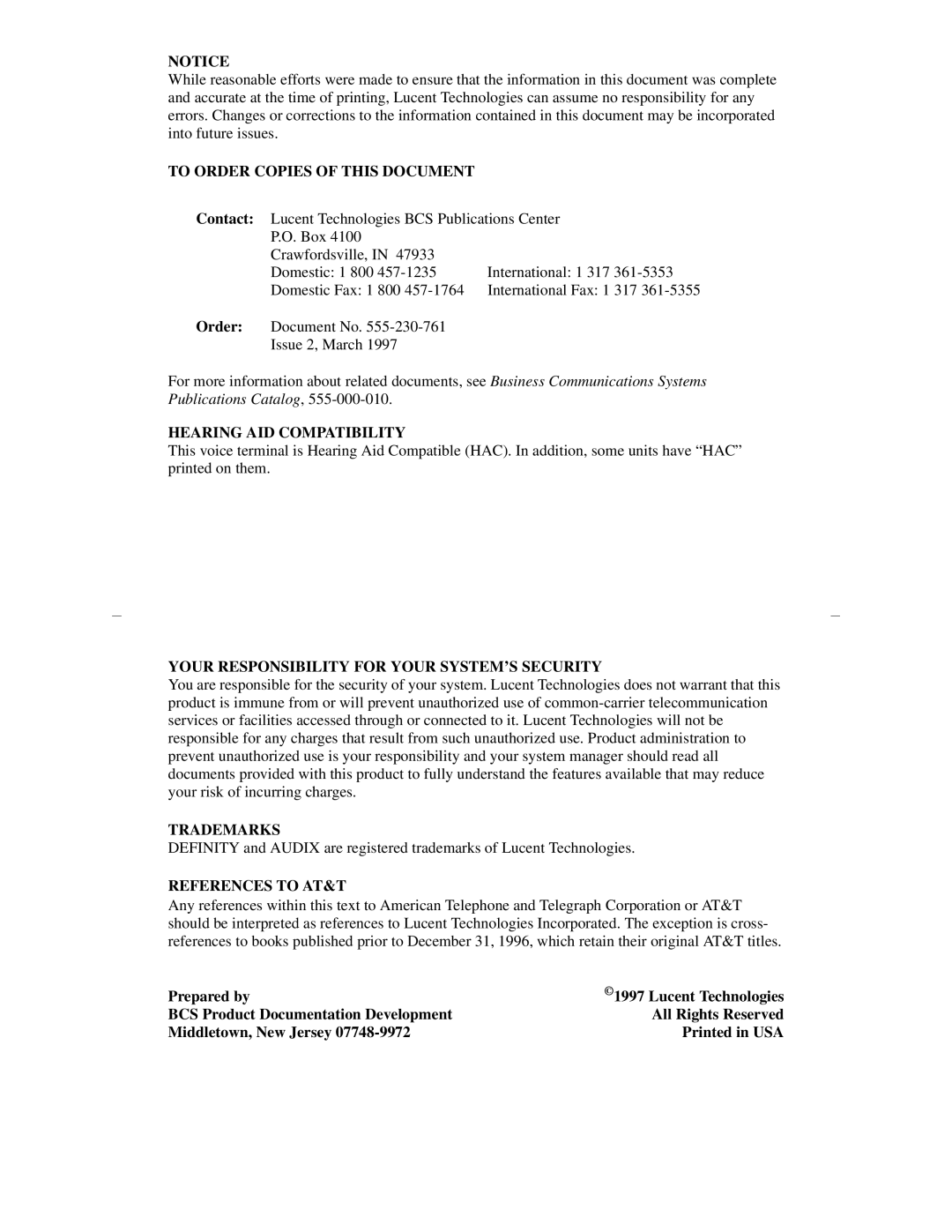8403 specifications
Lucent Technologies 8403 is a significant telecommunications switch that was primarily utilized in the late 1990s and early 2000s. It played a crucial role in the evolution of telecommunication systems, reflecting the rapid advancements in technology during that period. The 8403, part of the Lucent 8400 series, was known for integrating various features and capabilities that were vital for modern telecommunication networks.One of the standout features of the Lucent 8403 was its advanced switching technology. Utilizing time division switching and digital signal processing, the device was capable of handling a large volume of calls simultaneously while maintaining high-quality voice transmission. This technology enabled efficient routing of calls and minimized the risk of dropped connections, which was a concern in earlier analog systems.
Another significant characteristic of the Lucent 8403 was its support for a wide range of telecommunications protocols. The switch was designed to facilitate both traditional telephone services and emerging digital services, including ISDN and Frame Relay. By accommodating both circuit-switched and packet-switched networks, the 8403 provided flexibility that major telecommunication providers demanded during that transition period.
The 8403 also featured enhanced signaling options, such as Common Channel Signaling System No. 7 (CCSS7), which allowed for improved call setup, control, and management. This feature significantly reduced the time it took to establish a call, thereby improving overall network efficiency.
Scalability was another key characteristic of the Lucent 8403. As telecommunication needs grew, service providers could expand their systems by integrating additional hardware and modules without requiring a complete overhaul of the existing infrastructure. This adaptability was crucial as demand for services fluctuated and as new technologies emerged.
Moreover, the switch was designed with reliability and redundancy features in mind. Its architecture included failover mechanisms that ensured continued operation even in the event of hardware failures. This reliability was essential for operators that required uninterrupted service delivery.
Lastly, the user-friendly interface of the Lucent 8403 provided simplified management and monitoring capabilities. System administrators could easily access performance metrics, troubleshoot issues, and manage configurations, facilitating more efficient maintenance and operations.
In conclusion, the Lucent Technologies 8403 played a transformative role in telecommunications infrastructure during its era. Its blend of advanced switching technology, protocol support, scalability, reliability, and user-friendly management tools made it a foundational component in the evolution of modern telecom networks. As a result, it served as a significant stepping stone toward the complex, integrated systems we see today.
